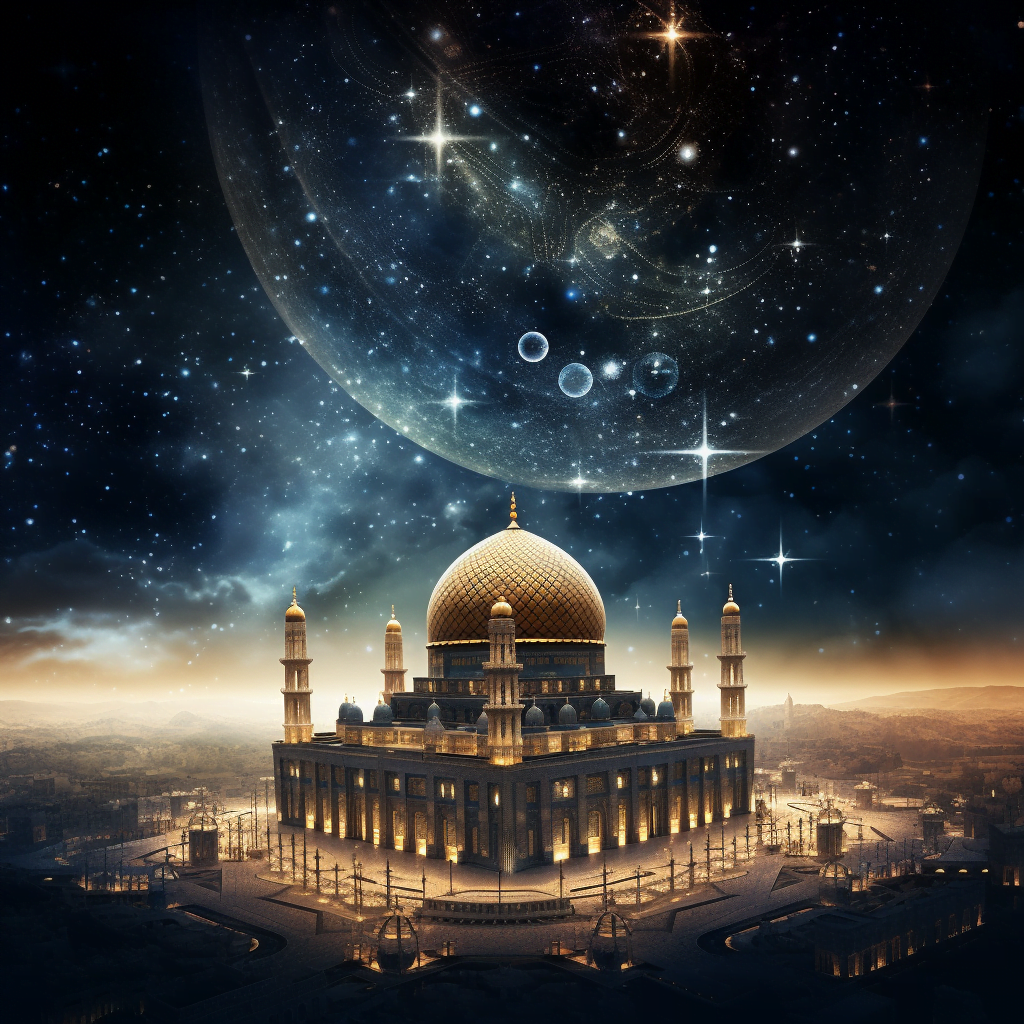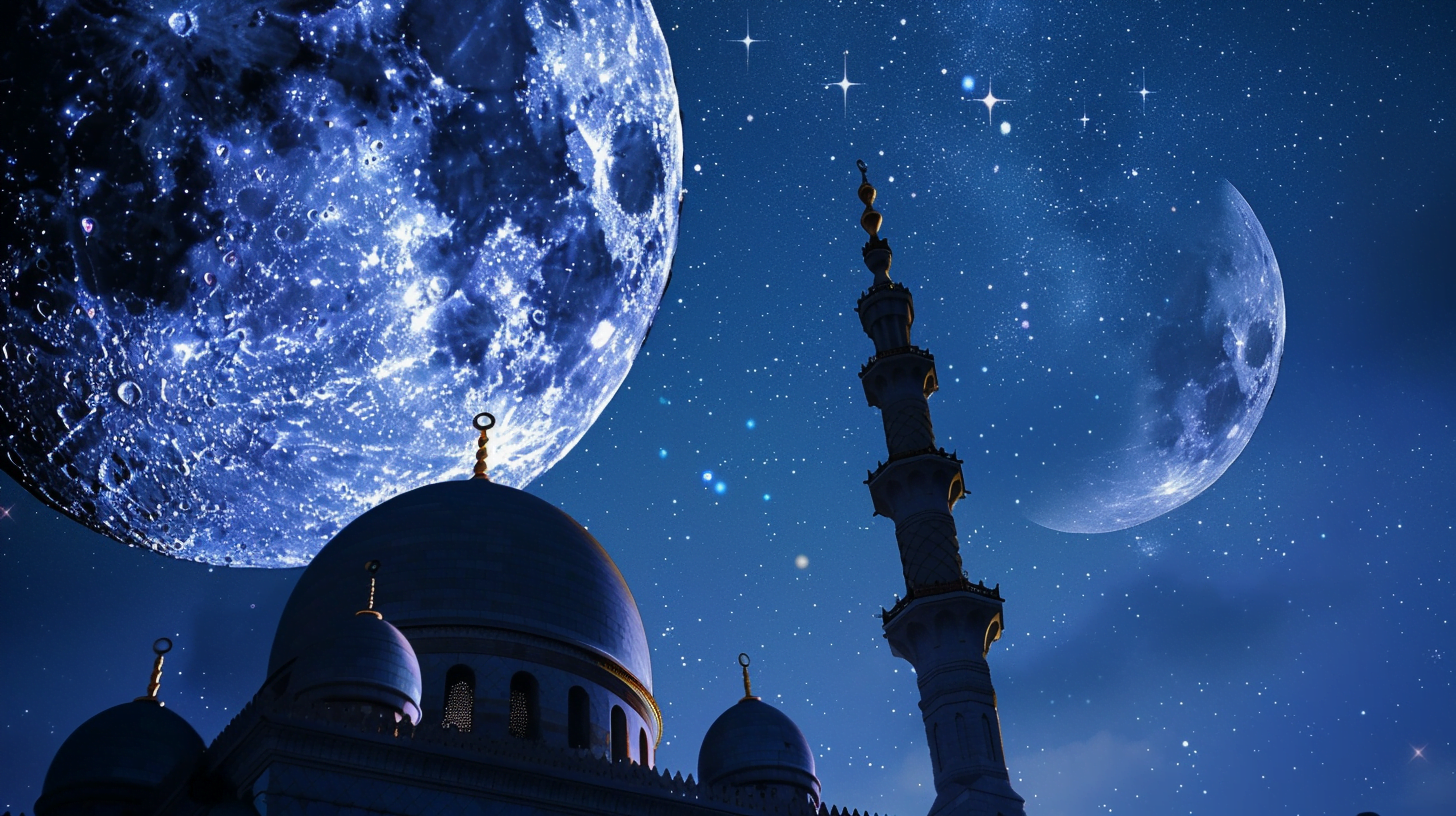The subject at hand is the relationship between astrology and Islam. Throughout this article, I will explore whether astrology is ingrained within the Islamic faith or if it is considered incompatible. To gain a better understanding, we will delve into the concepts of astrology and the Zodiac, examining their relevance within Islam. By examining various perspectives and religious teachings, this article aims to shed light on the complex relationship between Islam and astrology.
Background of Astrology
Definition and origins of astrology
Astrology is a complex and ancient belief system that seeks to understand and interpret the correlation between celestial bodies and human affairs. It explores the idea that the positions and movements of celestial bodies can have a profound influence on the lives and destinies of individuals, as well as on the broader course of history. The origins of astrology can be traced back to ancient civilizations such as the Babylonians, Egyptians, and Greeks, who developed intricate systems to study the movements of stars, planets, and other celestial entities.
Beliefs and practices associated with astrology
Astrology encompasses a wide range of beliefs and practices. One fundamental belief is that the position of celestial bodies at the time of a person’s birth can reveal key aspects of their personality, talents, strengths, and weaknesses. Astrologers, who are individuals trained in the art of interpreting astrological charts and horoscopes, use these birth charts to make predictions and provide guidance regarding various aspects of life, such as relationships, career, and health.
Practices associated with astrology include the casting of horoscopes, which involves mapping the positions of celestial bodies at a specific moment in time and using this information to provide insights and predictions about an individual’s life. Additionally, astrology often utilizes the zodiac, a system that divides the sky into twelve equal parts, each represented by a specific constellation. These twelve zodiac signs are believed to influence the personalities and characteristics of individuals born under them.
Astrology’s influence in different cultures
Astrology’s influence can be traced throughout history and across different cultures. Ancient civilizations such as the Mesopotamians, Egyptians, and Greeks all developed elaborate systems of astrology, incorporating celestial observations into their religious and societal practices. As these civilizations interacted and exchanged knowledge, astrology spread far and wide, influencing cultures as diverse as the Indian, Chinese, and Islamic civilizations.
In India, astrology, known as Jyotish, holds a significant place in Hindu culture and is deeply intertwined with religious and spiritual practices. Vedic astrology, a branch of Jyotish, is believed to have been developed thousands of years ago and remains influential today.
In China, astrology features prominently in both traditional Chinese medicine and the practice of feng shui. Chinese astrology is primarily composed of the twelve animal zodiac signs, which are believed to affect an individual’s destiny and compatibility with others.
Each culture’s interpretation and application of astrology have distinct characteristics and variations, reflecting the unique values, beliefs, and historical contexts of the respective societies.
Basic Tenets of Islam
Core beliefs and principles in Islam
Islam is a monotheistic Abrahamic religion that originated in the 7th century CE and has since grown to be one of the world’s major religions. At its core, Islam embraces the teachings of the Prophet Muhammad, as revealed in the Quran, the holy book of Islam. The religion’s primary beliefs include the belief in the oneness of Allah (God), the prophethood of Muhammad, and the Day of Judgment.
Islamic principles revolve around five essential pillars: Shahada (faith), Salah (prayer), Zakat (charitable giving), Sawm (fasting during Ramadan), and Hajj (pilgrimage to Mecca). These pillars serve as the foundation for Muslim worship and practice, shaping the ethical framework and moral guidance within the faith.
The role of fate, destiny, and free will in Islam
Islam teaches that Allah has complete control over all aspects of creation, including human destiny. Muslims believe in the concept of predestination, known as Qadr, which asserts that everything that occurs in the universe is already determined by Allah. This belief, however, does not negate the existence of human agency or free will.
While Muslims acknowledge that Allah has preordained their ultimate destiny, they also believe that they have the freedom to make choices and take actions. Islam emphasizes the importance of personal responsibility, ethical conduct, and the pursuit of righteousness. Muslims are taught to strive for what is good and just, to make choices in alignment with Islamic teachings, and to trust in Allah’s wisdom and guidance.
Islamic View on Astrology
The concept of Shirk (polytheism) in Islam
Islamic theology strongly emphasizes the belief in the oneness of Allah, known as Tawhid. This principle rejects any form of polytheism, associating partners with Allah, or attributing divine powers to any other beings or objects. This concept of Tawhid is central to the Islamic view on astrology.
Astrology, with its belief in the influence of celestial bodies on human lives, has the potential to challenge the concept of Tawhid. Islamic scholars argue that attributing power or influence to anything other than Allah is a violation of the oneness of Allah and constitutes shirk, which is considered the gravest sin in Islam.
Prohibition of divination and fortune-telling
Islamic teachings explicitly forbid the practice of divination and fortune-telling. Muslims are instructed to seek guidance and knowledge solely from Allah and the Quran. Divination and fortune-telling, including the practices associated with astrology, are seen as attempts to access hidden knowledge about the future and divine the unseen, attributing powers and knowledge to something other than Allah.
The Quran describes divination and fortune-telling as acts of disbelief and warns against their practice. This stance is rooted in the Islamic belief that the knowledge of the unseen belongs solely to Allah, and seeking such knowledge through these means is futile, deceptive, and contradictory to Islamic beliefs.
Scholars’ opinions on astrology in Islam
Islamic scholars have held varying opinions regarding astrology throughout history. Some scholars have condemned astrology outright, considering it contradicting to Islamic theology and a form of deception. These scholars argue that astrology promotes reliance on something other than Allah’s guidance, undermines personal responsibility, and encourages a fatalistic mindset.
Other scholars have adopted a more nuanced approach, acknowledging astrology’s historical significance and cultural context while cautioning against the belief in its actual efficacy. These scholars argue that astrology should be viewed as a cultural phenomenon or pseudoscience rather than a legitimate means of predicting the future or understanding human affairs.
The diversity of perspectives among Islamic scholars reflects the ongoing debate and discussion within the Islamic community regarding the compatibility of astrology with Islamic beliefs and values.
Astrology in Islamic History
Influence of pre-Islamic beliefs on astrology
Before the advent of Islam, Arabia was home to various cultures and religions, each with its own belief systems, including astrology. The Arabian Peninsula was a region where tribes engaged in extensive trade and cultural exchange with neighboring civilizations, such as the Greeks and Persians. Consequently, pre-Islamic Arabian cultures were exposed to different astrological practices, which likely influenced the development and incorporation of astrology within Islamic societies.
Astrological practices in medieval Islamic societies
During the Islamic Golden Age, which spanned from the 8th to the 14th centuries, Islamic scholars made significant advancements in various areas of knowledge, including astronomy and astrology. Islamic scholars, such as Al-Kindi, Al-Farabi, and Al-Biruni, studied and translated ancient Greek and Persian works on astrology, contributing to the growth and refinement of astrological knowledge within Islamic societies.
Astrology became an established field of study, recognized and supported by rulers and institutions across the Islamic world. Astrologers in medieval Islamic societies were often employed by the courts of rulers to cast horoscopes and provide guidance on matters such as political decisions, military campaigns, and personal matters.
Controversies within Islamic history regarding astrology
Despite astrological practices being prominent during the Islamic Golden Age, controversies surrounding astrology emerged within Islamic history. Some scholars criticized astrology’s claims of predicting the future as being contrary to Islamic beliefs in Allah’s complete knowledge and control over human affairs.
Scholars also debated the ethical implications of relying on astrological predictions, as it could lead to fatalism and a neglect of personal agency. These debates, along with changing sociopolitical dynamics and the introduction of competing philosophical and scientific ideas, contributed to a decline in the prominence of astrology within Islamic societies.
Astrology in Contemporary Islamic World
Popular astrology-related beliefs in Muslim-majority countries
In contemporary Muslim-majority countries, astrology continues to hold a place in popular culture and everyday beliefs, albeit with variations and adaptations influenced by local customs and traditions. Many individuals consult astrologers or regularly read horoscope columns to gain insights into their personal lives, relationships, and future prospects.
Astrology’s appeal often lies in its ability to provide a sense of guidance, reassurance, and understanding in an unpredictable world. Muslims, like individuals from other religious backgrounds, may be drawn to astrology due to personal curiosity, cultural exposure, or a desire for self-reflection and self-improvement.
Astrology’s presence in Islamic media and literature
Astrology has found its way into various forms of media and literature within the Islamic world. Popular Islamic books and magazines often dedicate sections to astrology, providing readers with horoscopes, guidance, and compatibility analyses based on zodiac signs.
Islamic television channels and websites may also feature programs or articles that discuss astrology, albeit with disclaimers and warnings about its compatibility with Islamic beliefs. The popularity of astrology within Islamic media and literature serves as a reflection of its enduring presence in contemporary Islamic societies.
Attitudes of contemporary Islamic scholars towards astrology
Contemporary Islamic scholars hold a range of views on astrology, reflecting the diverse perspectives within the broader Islamic community. Some scholars continue to reject astrology outright, emphasizing its contradictory nature to core Islamic beliefs and teachings.
Other scholars advocate for a more nuanced approach, acknowledging the cultural significance of astrology while reminding Muslims of the primary importance of relying on Allah for guidance and avoiding attributing divine powers to celestial bodies. These scholars advise caution and critical thinking when engaging with astrology, emphasizing the need for individuals to prioritize Islamic teachings and their personal relationship with Allah above any astrological practices.
Counterarguments and Criticisms
Islamic arguments against the compatibility of astrology and Islam
Islamic arguments against astrology center on the violation of Tawhid, the belief in the oneness of Allah. Astrology’s attribution of influence and power to celestial bodies is seen as challenging the exclusive authority of Allah over human affairs, contradicting Islamic monotheism.
Additionally, critics argue that astrology promotes a fatalistic mindset, undermining personal responsibility and the concept of free will. By ascribing predetermined courses of action or outcomes to celestial configurations, astrology can discourage individuals from actively seeking knowledge, making choices, and taking personal agency in steering their lives.
Criticism of astrological practices and predictions
Critics of astrology argue that its claims of predicting the future or providing accurate insights about an individual’s life lack empirical evidence and scientific basis. They consider astrological practices to be subjective and prone to biases, with predictions often ambiguous and open to interpretation.
Furthermore, astrology’s reliance on generalizations based on zodiac signs is seen as overlooking the complexity and uniqueness of individuals. Critics contend that personality traits and life outcomes cannot be attributed solely to one’s zodiac sign but are shaped by a multitude of factors, including cultural, social, genetic, and personal experiences.
Perceived conflicts between astrology and Islamic beliefs
Astrology’s potential conflicts with Islamic beliefs extend beyond the theological realm. Islamic ethics and teachings emphasize the importance of seeking knowledge, engaging in critical thinking, and making well-informed choices based on evidence and reason. Critics argue that astrology, with its reliance on superstition, generalizations, and unverified claims, runs counter to this emphasis on intellectual rigor and rationality.
Additionally, astrology’s focus on personal fate and destiny raises questions about the concept of accountability and individual responsibility in Islam. Islam teaches that humans are accountable for their actions and that they have the agency to make choices that align with Allah’s guidance. Critics argue that astrology’s fatalistic tendencies undermine this fundamental aspect of Islamic teachings.
Alternative Interpretations
Efforts to reconcile astrology with Islamic theology
Some individuals and scholars have made efforts to reconcile astrology with Islamic theology by adopting metaphorical or symbolic interpretations. These interpretations treat astrological concepts and symbols as metaphors or tools for self-reflection, rather than literal indicators of destiny or future events.
For example, some argue that the zodiac signs can be understood as archetypes or psychological profiles that provide insights into one’s natural predispositions or inclinations, rather than deterministic markers of personality or fate. This approach seeks to preserve some aspects of astrology while aligning it with the symbolic language often used within Islamic spirituality and introspection.
Metaphorical and psychological interpretations of astrology
Another alternative approach to astrology within an Islamic context involves interpreting astrological concepts and symbolism through a psychological lens. This perspective views astrology as a means to gain self-awareness, understand human nature, and explore the depths of the human psyche.
Psychological interpretations of astrology focus on the potential for self-reflection and personal growth offered by astrological archetypes and symbols. Instead of relying on predictions or claims of cosmic influence, this approach encourages individuals to use astrology as a tool for introspection, self-examination, and uncovering hidden aspects of their personalities.
Astrology as a cultural or historical phenomenon within Islam
Some scholars propose viewing astrology as a cultural or historical phenomenon within Islam, rather than an inherently religious practice. They argue that astrology, like other aspects of human culture, evolved and influenced various societies throughout history, including Islamic societies. From this perspective, astrology can be studied and examined as a cultural artifact or phenomenon, offering insights into the historical practices, beliefs, and intellectual developments of Islamic civilizations.
By recognizing astrology’s historical presence within Islamic societies, scholars and individuals may engage in a critical examination of its cultural significance and impact, while acknowledging its distinct separation from core theological principles and religious obligations.
Personal Beliefs and Practices
Individual Muslims’ perspectives on astrology
Just as Islamic scholars hold diverse views on astrology, individual Muslims also approach the subject with varying degrees of acceptance or rejection. Personal beliefs regarding astrology are influenced by a range of factors, including cultural background, personal experiences, educational upbringing, and levels of religious understanding.
Some Muslims may wholly reject astrology based on religious guidance and the belief that it contradicts Islamic principles. They view astrology as incompatible with their faith and may actively discourage its practice within their communities.
Others may engage with astrology to varying degrees, either for entertainment or personal exploration, while privately acknowledging its limitations and the primacy of Islamic beliefs in their lives. Such individuals may approach astrology with caution, seeking to balance their curiosity or enjoyment with a firm grounding in their faith and understanding of Islamic teachings.
Factors influencing personal acceptance or rejection of astrology
The acceptance or rejection of astrology among individual Muslims can be influenced by several factors. Firstly, the level of religious knowledge and understanding plays a significant role. Individuals with a deeper understanding of Islamic theology and principles may be more likely to reject astrology based on their perception of its contradictions with core Islamic beliefs.
Cultural and social influences also play a significant role. Muslim-majority countries, for instance, vary in their attitudes towards astrology, with some cultures embracing it more openly due to historical or cultural factors. Similarly, personal experiences and exposure to astrology, along with societal norms and trends, can shape one’s beliefs and inclinations towards astrology.
Lastly, personal disposition and individual interpretations of Islamic teachings contribute to one’s acceptance or rejection of astrology. Some individuals may be drawn to the spiritual or psychological aspects of astrology, perceiving it as a means to gain self-awareness or navigate life’s complexities. Others may prioritize strict adherence to religious teachings and perceive astrology as incompatible with their understanding of Islam.
Variations in astrological beliefs among Muslims
Just as there is diversity in the acceptance or rejection of astrology among individual Muslims, there can also be significant variations in the specific astrological beliefs and practices embraced by those who do engage with it.
Some individuals may limit their involvement with astrology to casual readings of horoscopes or occasional conversations, treating it more as a form of entertainment or curiosity rather than a serious belief system. Others may explore astrology as a tool for self-reflection, drawing insights from its symbolism or archetypal interpretations without ascribing a literal or predictive value to it.
The variations in astrological beliefs among Muslims reflect the complex interplay between culture, personal beliefs, and a range of individual approaches to faith and spirituality within Islamic communities.
Contemporary Debates and Discussions
Public discourse on astrology within Islamic communities
Contemporary Islamic communities often engage in vibrant debates and discussions surrounding astrology. These conversations take place across multiple platforms, including social media, Islamic centers, academic forums, and religious gatherings.
Public discourse on astrology within Islamic communities revolves around questions of religious compatibility, cultural significance, and personal beliefs. These discussions can be characterized by a wide range of opinions, reflecting the diversity of Islamic thought and interpretations. Some individuals engage in rigorous debates aimed at upholding the primacy of Islamic beliefs, while others explore the historical or cultural dimensions of astrology within an Islamic context.
Inclusion or exclusion of astrology in Islamic educational curricula
The topic of astrology’s place in Islamic educational curricula is a subject of ongoing discussions and considerations among scholars and educators. In some Muslim-majority countries, astrology is not formally included in Islamic educational curricula or regarded as a part of religious teachings. Its exclusion is often based on the perception that astrology contradicts core Islamic beliefs and values.
However, in certain academic settings or cultural contexts, the study of astrology may be incorporated into broader educational programs, approached from a historical or anthropological perspective. Academic discussions may explore the historical impact and cultural significance of astrology within Islamic societies, contributing to a deeper understanding of its place in Islamic history and intellectual development.
Views of younger generations regarding astrology in Islam
Attitudes towards astrology among younger generations of Muslims may differ from those of older generations due to a variety of factors, including increased exposure to global cultural influences, access to diverse sources of information, and evolving societal trends.
While some younger Muslims may view astrology with skepticism, questioning its scientific validity and compatibility with Islamic beliefs, others may adopt a more open-minded approach, seeking to reconcile personal beliefs and interests with their religious identity. The diverse perspectives of younger generations contribute to the ongoing discussions and reflections on astrology within contemporary Islamic communities.
Conclusion and Summary
Overview of diverse perspectives on astrology in Islam
The topic of astrology within Islam elicits a wide range of opinions, beliefs, and practices. Islamic theological principles, such as Tawhid and the emphasis on personal responsibility and free will, create tensions and concerns about the compatibility of astrology with core Islamic values. Prohibition against divination and fortune-telling further reinforces the skepticism and rejection of astrology among many Muslims.
However, personal beliefs and practices regarding astrology among individual Muslims vary significantly, influenced by cultural, social, and personal factors. Some individuals may perceive astrology as a cultural or historical phenomenon within Islam, while others reject it entirely as conflicting with their religious beliefs. Alternative interpretations and psychological perspectives provide alternative avenues for engaging with astrology, focusing on metaphorical or introspective aspects rather than literal predictions.
Importance of recognizing the complexity of the issue
The complexity and diversity of perspectives on astrology within Islam underscore the importance of nuanced discussions and open-minded dialogue. Recognizing the various factors that shape individuals’ beliefs and attitudes towards astrology allows for a more comprehensive understanding of the subject.
Critically examining astrology within the broader context of Islamic beliefs, history, and cultural practices allows for a deeper understanding of the interactions between religion, culture, and human knowledge systems. It encourages individuals and communities to engage with astrology within their personal and religious contexts, while remaining mindful of the potential conflicts and consideration of Islamic principles.
Implications for further exploration and dialogue
The exploration of astrology within Islam raises important questions and challenges. This requires ongoing dialogue between scholars, religious leaders, and individuals from diverse perspectives. The continued examination of astrology’s historical significance, cultural contexts, and theological implications can contribute to a deeper understanding of the role of astrology within Islamic societies.
Further studies and conversations should aim to promote intellectual rigor, cultural sensitivity, and respectful engagement. By fostering open dialogue and mutual understanding, individuals can navigate the complexities of astrology within the Islamic framework, facilitating the growth of knowledge and the further development of individual spiritual beliefs and practices.



